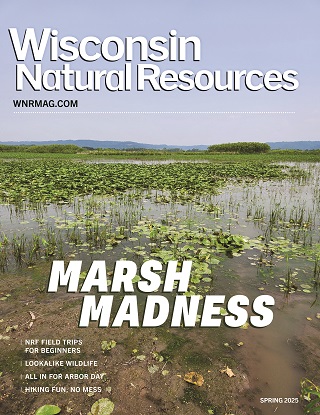Contact: Adam DeWeese, DNR Public Water Supply Program Manager
Adam.DeWeese@wisconsin.gov or 608-630-2204
New PFAS And Manganese Grant Program For Small Public Water Systems To Open In January 2024
MADISON, Wis. – The Wisconsin Department of Natural Resources (DNR) today announced the opening of a new grant program in 2024 that will help Other-Than-Municipal Community and non-profit, Non-Transient Non-Community public water systems address PFAS and manganese contamination. The Emerging Contaminants for Small or Disadvantaged Communities Grant Program for these public water systems will begin accepting applications on Jan. 16, 2024.
Other-Than-Municipal Community public water systems are not owned by a government or municipality and serve groups of 25 or more year-round residents. Common examples include mobile home parks, apartment buildings and condominium associations.
Non-Transient Non-Community public water systems are non-residential and regularly serve groups of at least 25 of the same people over six months of the year. Common examples include schools and daycare centers.
Perfluoroalkyl and polyfluoroalkyl substances (PFAS) are a group of human-made chemicals used for decades in numerous products, including non-stick cookware, fast food wrappers, stain-resistant sprays and certain types of firefighting foam. These contaminants have made their way into the environment in a variety of ways, including spills of PFAS-containing materials, discharges of wastewater that contain PFAS from treatment plants and use of certain types of firefighting foams. PFAS are known to bioaccumulate in fish and wildlife tissues and accumulate in the human body, posing several risks to human health.
Manganese is a naturally occurring metal that can cause significant health impacts if consumed in high concentrations.
This grant funding comes at an opportune time, as Other-Than-Municipal Community and non-profit, Non-Transient Non-Community public water systems around Wisconsin are actively finishing initial PFAS testing required under Wis. Admin. Code § NR 809.
“This is an exciting opportunity to offer financial help to some of Wisconsin’s smallest public water systems,” said Adam DeWeese, DNR Public Water Supply Section Manager. “PFAS and manganese contamination impacts communities across Wisconsin, but Other-Than-Municipal Community and Non-Transient Non-Community public water systems have historically been ineligible for funding opportunities. This new grant program offers a unique opportunity for the DNR to fund small or disadvantaged public water systems to reduce emerging contaminants in drinking water.”
Wisconsin is one of few states regulating two PFAS chemicals in drinking water. The U.S. Environmental Protection Agency (EPA) recently announced the proposed National Primary Drinking Water Regulation, which, when finalized, would regulate six PFAS chemicals and include lower maximum contaminant levels than Wisconsin currently enforces.
The new grant program, funded through the Bipartisan Infrastructure Law, will allow Other-Than-Municipal Community and non-profit, Non-Transient Non-Community public water systems to address and decrease their PFAS levels to meet the proposed EPA levels.
The DNR recommends that interested applicants review the Emerging Contaminants for Small or Disadvantaged Communities Grant announcement for detailed information on eligibility and how to prepare an application. Questions may be emailed to DNRECSDCGrants@wisconsin.gov.

